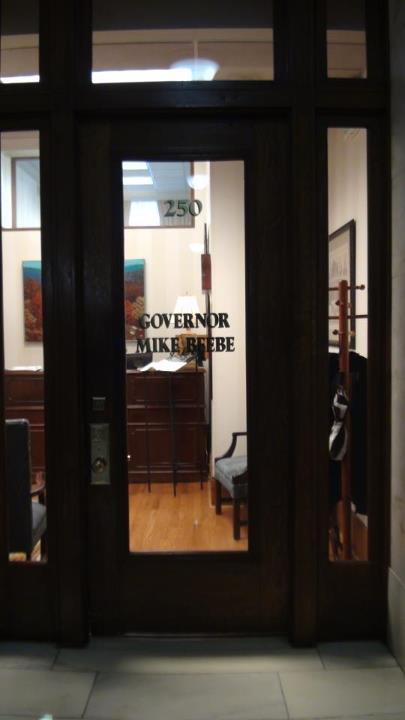
Saturday, 23 March 2013
Do we then make void the law through faith? Certainly not! On the contrary, we establish the law. Romans 3:31
Based on his argument that it is faith apart from deeds of the law by which we are justified, Paul now asks, “Do we then make void the law through faith?” The question is obvious and the answer, unfortunately will be misunderstood unless looked at through the work of Jesus on our behalf. Let us first consider Jesus’ words from Matthew 5:17 –
“Do not think that I came to destroy the Law or the Prophets. I did not come to destroy but to fulfill.”
Using Paul’s response, and/or the first half of Matthew 5:17, some teach that we are bound by the precepts of the law. This is taken to varying degrees by different sects and denominations, but in the end, it is entirely contrary to the tenor of the rest of the New Testament. Time and time again, we are instructed by Paul and others that the law is over and done with in Christ Jesus. Here are a few of the many examples of this –
“For the law was given through Moses, but grace and truth came through Jesus Christ. John 1:17
Moreover the law entered that the offense might abound. But where sin abounded, grace abounded much more,..” Rom 5:20
“For sin shall not have dominion over you, for you are not under law but under grace.” Rom 6:14
“I do not set aside the grace of God; for if righteousness comes through the law, then Christ died in vain.” Gal 2:21
“You have become estranged from Christ, you who attempt to be justified by law; you have fallen from grace.” Gal 5:4
“For on the one hand there is an annulling of the former commandment because of its weakness and unprofitableness, for the law made nothing perfect; on the other hand, there is the bringing in of a better hope, through which we draw near to God.” Heb 7:18, 19
That the law is obsolete and set aside in Christ is explicitly stated. This means the entire body of the law; no distinction is ever made between a “moral law” and a “ceremonial law.” However, many attempt to find such a distinction. The “moral law” would include the Ten Commandments and the “ceremonial law” would include such things as eating pork, sacrificing at the altar in Jerusalem, etc.
By looking for such a distinction, the body of law found in the Old Testament becomes a “pick and choose” code for Christians. Some denominations still teach tithing, or they may pick “no pork” for example. And even those who say only the Ten Commandments still apply will normally worship on a Sunday instead of observing a Saturday Sabbath. Thus they violate their own premise in retaining the Ten Commandments. It is all or none and the answer is “none.” The former commandment is annulled in its entirety.
However, this sits uncomfortably with the masses. Does this mean that murder is ok? Of course not. Nine of the ten commandments are explicitly restated in the New Testament and are therefore binding; they are a part of the New Covenant. However, the Sabbath is noted as having been fulfilled. We now enter into God’s rest (Hebrews 4:3) and therefore we are free from a specific Sabbath observance.
Understanding this, we must now return to Paul’s question, “Do we then make void the law through faith?” Paul says, “Certainly not!” So is there a disconnect in what Paul is saying here and the rest of the New Testament? Certainly not! Instead, it is our misunderstanding of his next comment – “On the contrary, we establish the law.” The word translated here as “establish” is histanomen. It has been variously translated as strengthen, uphold, fulfill, establish, support, etc.
The law of faith which Paul has been speaking of is a means of validating or strengthening the law. We have failed at fulfilling it, but Jesus fulfilled it on our behalf. Return again to Jesus’ words in Matthew 5:17 – “Do not think that I came to destroy the Law or the Prophets. I did not come to destroy but to fulfill.” And fulfill it He did!
Now, by faith in His work we are free from the very law which He fulfilled on our behalf. His merits are credited to us when we place our faith in what He did. Thus the law is established in us; it is upheld in us; and thus it is obsolete to us. When something is fulfilled, it is no longer necessary. As He fulfilled it in our stead, we are free from its constraints. This is the amazing work of Jesus on our behalf.
Life application: Do not reinsert the law where it does not belong. Jesus established the New Covenant at the Last Supper. The book of Hebrews tells us that the former commandment is annulled. We cannot mix that which is annulled into what is newly established without showing a lack of trust in Jesus’ work. Give God the glory for what He has done through Jesus and then go forward in the power and strength of that which Jesus established for us.
Beautiful Lord God, when I think on the marvel of what You have done by having wiped out the handwriting of the law which stood against us, having nailed it to the cross to set me free from its constraints, it is beyond my ability to grasp. Where I failed, Jesus prevailed. He has triumphed over darkness and shown forth Your marvelous light. Hallelujah and Amen.
men.
